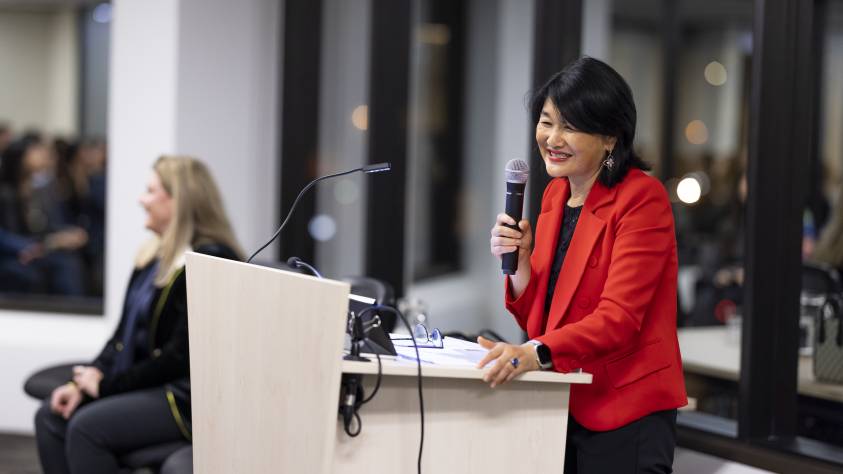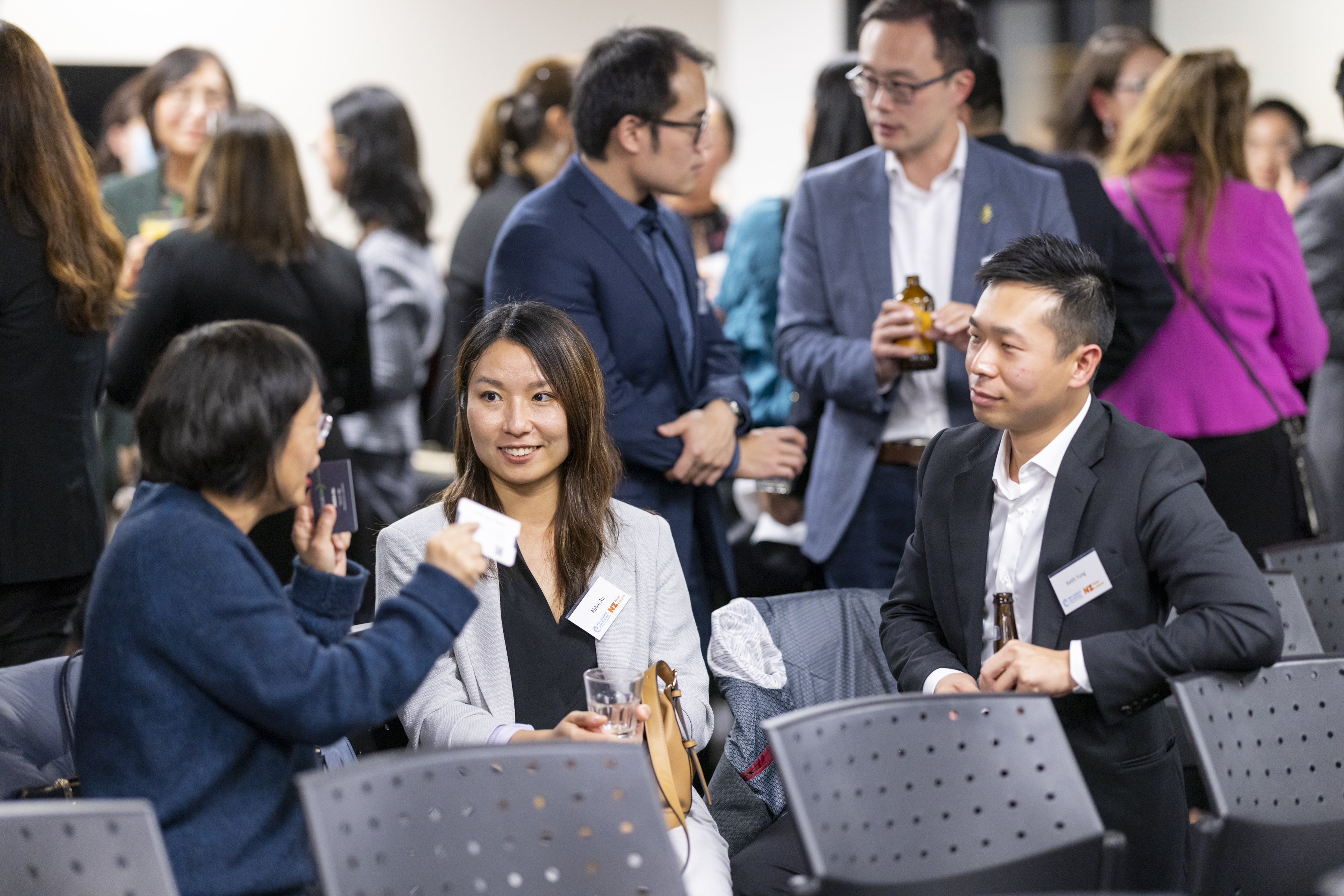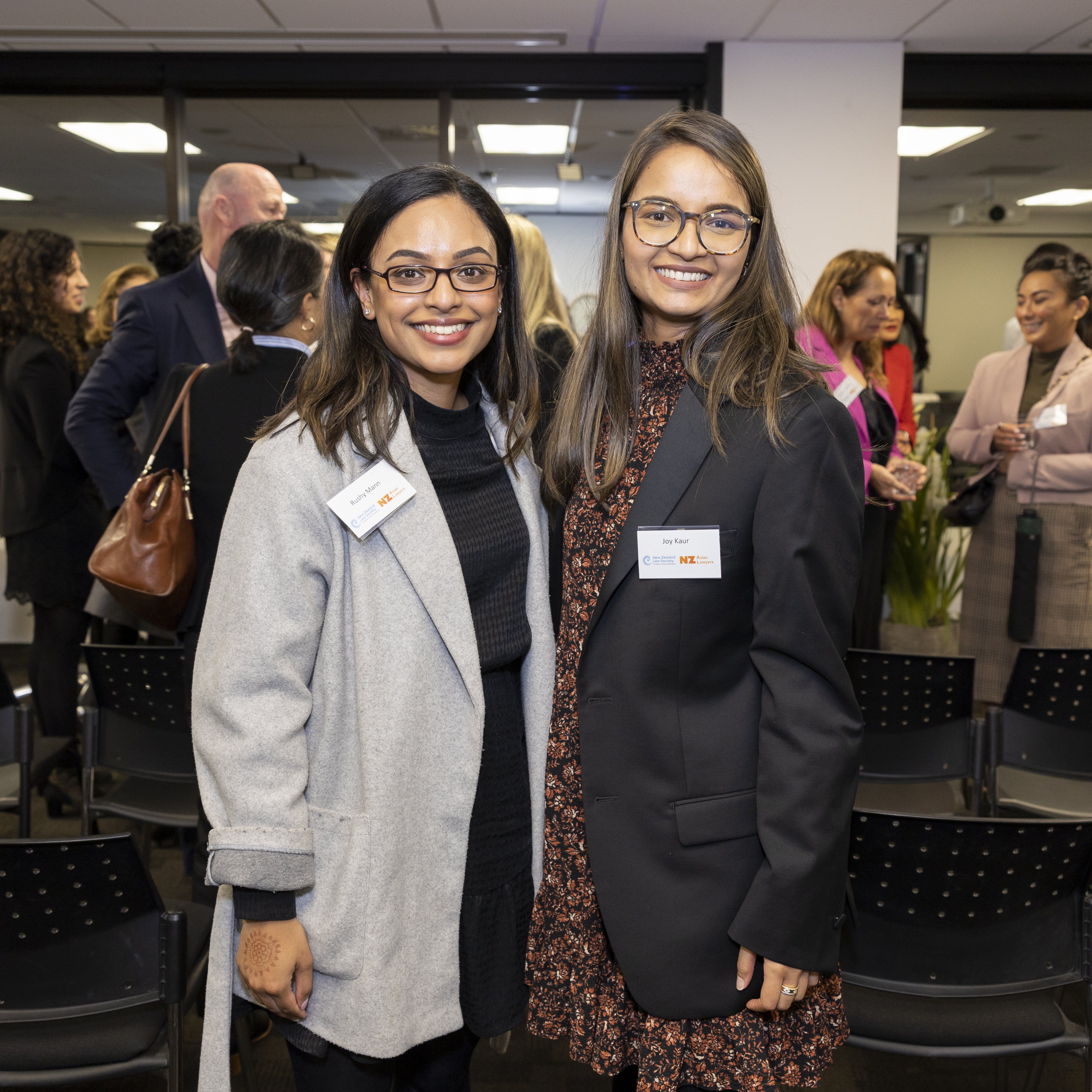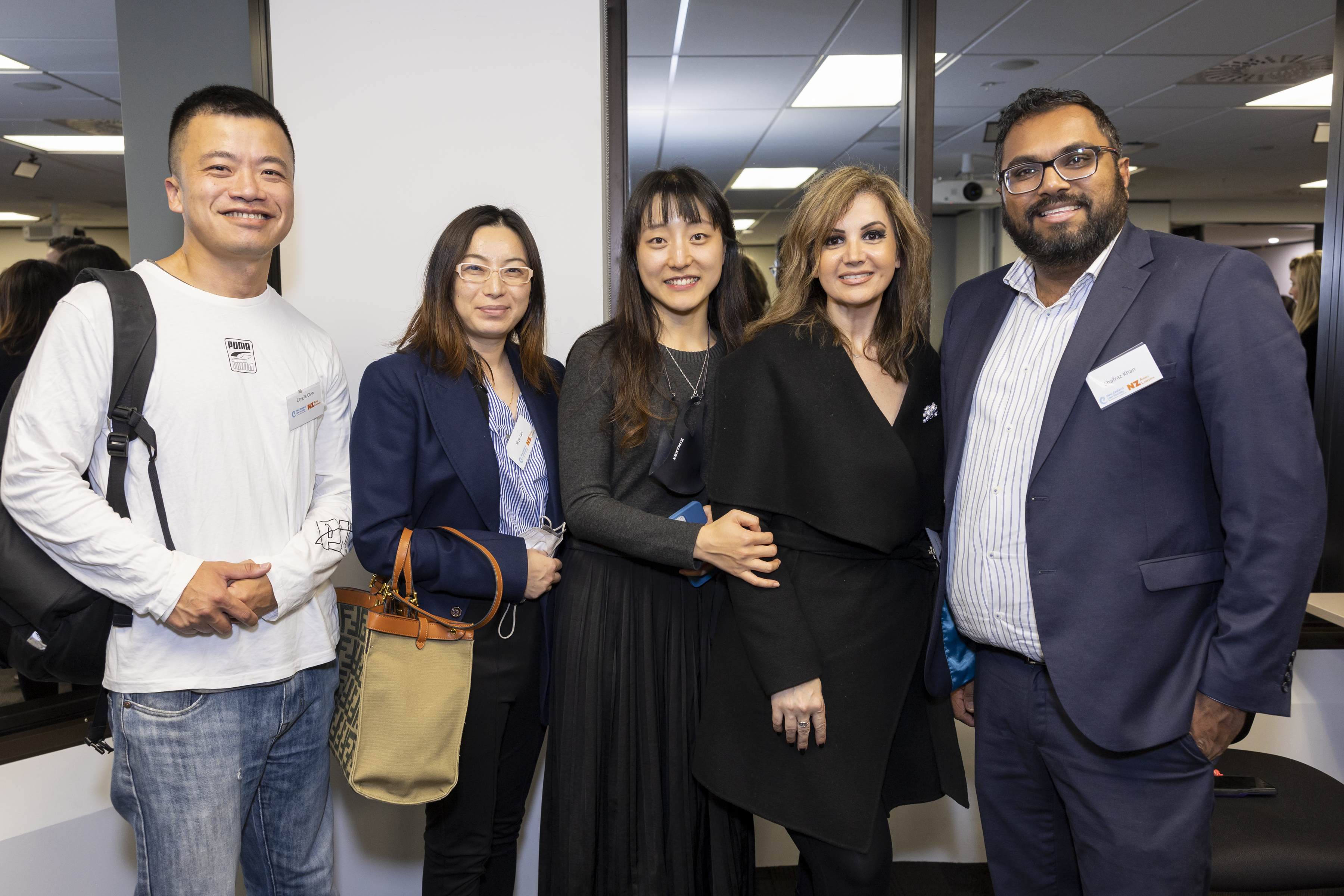Progress and transformation: Diversity in the judiciary

President of NZ Asian Lawyers, Mai Chen, talks to LawTalk about an intriguing series of webinars focussed on diversity in the judiciary, and why judicial diversity matters.


President of NZ Asian Lawyers, Mai Chen, talks to LawTalk about an intriguing series of webinars focussed on diversity in the judiciary, and why judicial diversity matters.
Attendees at a recent series of webinars run by New Zealand Asian Lawyers and the New Zealand Law Society (“Law Society”) were privileged to hear some of our top judges’ thoughts about diversity in the judiciary.
The speakers were Chief Justice Helen Winkelmann (“the Chief Justice”), Chief District Court Judge Heemi Taumaunu (“Chief Judge Taumaunu”), Chief Employment Court Judge Christina Inglis (“Chief Judge Inglis”), Chief Māori Land Court Judge Wilson Isaac (“Chief Judge Isaac”), and Judge Te Kani Williams.
The Chief Justice explained that judicial diversity and cultural capability are some of her key priorities, as evidenced through:
Chief Judge Taumaunu described the Te Ao Mārama kaupapa as a solution-focused judging approach that identifies and addresses underlying issues or causes of offending or wrongdoing that is intended to be designed and implemented in all District Court locations. Chief Judge Taumaunu noted the similarities between Māori, Pacific and Asian cultures – collective good outweighing individual benefit; deep respect for elders and care for the young; and strong emphasis on faith and family. With attribution to Manying Ip, Chief Judge Taumaunu described Māori, Pacifica and Asian communities as “natural allies in adversity” – the point of Te Ao Mārama being to ensure that the District Court provides access to justice for all people from all backgrounds, regardless of their ethnicity, religion, language or culture. Te Ao Mārama applies to everyone affected by the business of the court. People should leave court feeling that they have been seen, heard and understood and have been able to meaningfully participate in their own proceedings. The Te Ao Mārama kaupapa will welcome support from local communities and local iwi in all mainstream courtrooms to ensure opportunities for assistance are available to all of those who may need it.
Chief Judge Inglis explained that one of the first tasks of Te Awa Tuia Tangata | the Judicial Diversity Committee was to identify the diversity gaps in the judiciary by assessing its current composition. The first Judicial Diversity Survey (“the Survey”) – published in the Chief Justice’s inaugural Annual Report 2020-2021 (“the Annual Report”) – canvassed a range of diversity indicators, including ethnicity and origins, gender and sexuality, disability, professional background, family background and religion.
The Survey reported a 60:40 ratio of men to women judges, and a judiciary comprising 200 judges of Pākehā descent, 45 of Māori descent, 30 of European descent, and a handful of other ethnicities – including three Asian judges. That represents significant progress, which the Chief Justice attributed to “successive Attorneys-General including our current Attorney-General and [her] predecessor Chief Justice [Dame Sian Elias, who] have been committed to improving diversity on the bench”.
As Chief Judge Isaac said, “the Māori Land Court is proud to have grown into a court that reflects quite accurately the community that it serves: we have a total of 13 judges in this specialist jurisdiction consisting of six male judges and seven female judges. Eleven of the judges are of Māori heritage and the majority speak and, or understand Te Reo Māori. Our latest appointments in September 2021 continue in this trend... This current generation signals a huge shift from the Māori Land Court of past generations when most judges were of Pākehā descent and had limited capability in Te Reo Māori”. Chief Judge Taumaunu also said there had been significant change since 2008 when Te Reo was first spoken in the District Court, and there would be ongoing change over the next ten years, especially given the diversity of younger judges, particularly those in the 45-49 year age group.
Despite the progress made, the Chief Justice acknowledged that the Survey showed “serious gaps within the judiciary… for us to target our efforts in striving for diversity”.
The new President of the Law Society, Jacque Lethbridge has also assigned top priority to diversity at all levels of the profession, including in the judiciary, and will give the next webinar in this series. She has written that “we cannot ignore issues regarding insufficient female and diverse lawyers from diverse backgrounds attaining partnership or senior ranks of the bar. There is a great deal of work to be done”.1

The Chief Justice discussed two main themes which illustrate the importance of judicial diversity:
The aim, the Chief Justice said, is a judiciary that is reflective, in the general sense, of society and through that, a judiciary that has the benefit of richness of thought, experience and background of the community as a whole. Diversity in this sense is very broad: it is not just about where you went to school, or what your parents do, it is also about the work you have done prior to being appointed, the clients you have represented and the communities you have been in contact with.
The Chief Justice said the demands on judges today are greater than they have ever been. Judges serve a more diverse society, with more complex social and economic relationships. There is an increased awareness about who it is that is coming before our courts, and the disadvantages they have endured in terms of past trauma, cognitive or linguistic difficulties, or cross-cultural challenges. Of course, greater awareness means there are also higher expectations that the courts will adequately respond to these complexities, to ensure that all who come before the courts are treated with respect and dignity and are able to fully participate and understand court proceedings.
One in 9 lawyers in New Zealand identify as Asian,2 1 in 7 people in New Zealand identify as Asian;3 and it is closer to 1 in 3 people identifying as Asian in Auckland.4 Yet only 1 in 62 New Zealand judges identify as Asian (three judges identifying as Indian, one identifying as Vietnamese, and one identifying as Māori/Chinese).5 Do Asian lawyers lack the intellect, integrity and connection with the community to make it to the senior ranks of the profession and to all levels of the judiciary?
The Chief Justice said this gap was “part[ly]… because Asian lawyers have not been coming through in the numbers they have until recently. The gap was not so profoundly stark until recent times but it was still sitting there”. The Chief Justice noted that another contributor to this gap may have been that historically there was a greater focus for Asian lawyers to take a commercial law route rather than a litigation or criminal law focus. However, the Chief Justice stressed that regardless of the cause “I have no doubt that our focus on diversity has increased. I also have no doubt that things are going to change as a consequence. Change will be helped by us getting a better line of sight into the Asian legal profession”.
The Chief Justice also emphasised that “…there is a long history of… discrimination against Chinese populations… [including] legalised discrimination. I believe that knowledge of that history is important because that history shapes a people, [and] how people engage with institutions of power, and of course the judiciary is an institution of power. It is important therefore that we educate judges about the values and lives of those from different ethnic communities but that we also provide education about the historical context”.
Another obstacle to judicial diversity identified by the Chief Justice was the trend towards specialisation that developed in the 1990s and 2000s. This is problematic, especially for the High Court, because lawyers who work in only a narrow field of law may not have the grasp of the broad range of principles that a High Court judge needs, and may also have a very narrow client base, and more limited connection with the wider community.
The discussion with Chief Judges Inglis and Isaac and Judge Te Kani Williams noted that for certain cultures, it might not be the norm to self-promote or to highlight individual merit. Māori say “Kāore te kūmara e kōrero mō tōna ake reka” | “the kūmara doesn’t speak of its own sweetness”. However, judicial selectors need visibility of potential candidates to make appointments. As the Race Relations Commissioner Meng Foon said in a Question and Answer comment to the webinar, “nobody is a mind reader”, and if an Asian lawyer, or any lawyer for that matter, wants to be considered for a judicial appointment, get your CV in order and make yourself visible. The process is confidential, and Chief Judge Inglis urged those concerned about the possibility of rejection “to be brave enough to put yourself out there and be receptive to feedback”.
The need for greater judicial representation from the Asian legal community, in addition to “improving our understanding amongst the existing judiciary [of] those communities, the languages, the cultural context, and the everyday lives of people within them so that those judges who are now serving can serve those communities better” were both highlighted by the Chief Justice as “pressing” and “priority” matters for the judiciary.

The Attorney-General is responsible for appointments but the judiciary does have a role, for instance in relation to senior court appointments (that being appointments to the High Court, Court of Appeal and Supreme Court), the Attorney-General consults with the Chief Justice about senior court judges. All heads of bench have a role in identifying people who are appropriate for judicial appointment and putting those names forward. They also have a role in encouraging people to seek judicial appointment and explaining the pathways that are helpful in that regard.
The Chief Justice said that the overriding criterion for judicial appointment is excellence as a lawyer exercised in a relevant legal occupation. For High Court judges, this requires a reputation for excellence across a number of areas of the law, while for specialist courts (like the Family Court), specialised experience and expertise is required.
The Chief Justice said that beyond legal excellence and judicial leaders the judiciary needs people with a connection to the community and an ethos of community service. We want people who seek out this role through a desire to serve. Being a judge also takes courage she said: “You are often having to make decisions in the most fraught circumstances under the full glare of public scrutiny. We want to know people have good judgment and the courage to do what is right – even though the heavens may fall”.
The Chief Justice says that, if you are thinking about judicial appointment, you should seek to develop as a lawyer and have a commitment to be a lifelong learner. If you are interested in senior court appointments, you should seek out a range of legal experience, as well as community involvement. She noted that now a measurement of excellence, and one of the criteria for appointment to QC, is service of access to justice. In addition, while judicial appointees have often been primarily senior barristers, including QCs, there is now opportunity for people who have followed different career paths, including working as in-house counsel.
Judge Te Kani Williams shared that his journey to the Māori Land Court bench in September 2021 was not straightforward as his first expression of interest for the Māori Land Court bench did not translate into an appointment, but he did receive helpful feedback on what he needed to work on, which he addressed and later resulted in his appointment.
All of the judges speaking wanted the following information about judicial appointments, included in this article. See the Crown Law Protocol regarding appointments to higher courts (available at www.crownlaw.govt.nz/assets/uploads/judicial-protocol.pdf), and the District Court’s website regarding appointments to that court (www.districtcourts.govt.nz/about-the-courts/the-district-court-judiciary/judicial-appointments/).
Legal education is another priority for the Chief Justice, “because no one person embodies the full diversity of the community or can have sufficient knowledge as they walk into the role of judge to do the work they do to the standard that we now require”. Diversity is not just about having a judiciary that is reflective of society, but also about ensuring judges are lifelong learners who are fit to judge in a diverse society.
Te Kura Kaiwhakawā | the Institute of Judicial Studies has been doing significant work in recent years to increase judicial education about social structures, values and lives of people from all parts of society. Te Reo Māori and Tikanga Māori have been core parts of the curriculum for the past 7-8 years. There is also Judging in Context, a handbook that provides judges with guidance to ensure that all those who come into court receive a fair hearing. It provides resources to judges on a range of cultural and linguistic issues to improve their understanding of the full diversity of society. Since 2019, judges have participated in seminars on issues of interpreting cultural and linguistic concepts to assist judges in moving across cultural contexts. This has included, among many other important topics, presentations focused specifically on Chinese and Indian culture.

New Zealand Asian Lawyers was founded in 2019, after the launch of the Report on Culturally and Linguistically Diverse Parties in the Court made more glaring the gap that there was no Asian Lawyers Association. Tiana Epati, the then president of the NZLS, approached Mai Chen with the question “Why is there no Asian Lawyers Association?” There are currently 100 members and more joining every week. www.superdiversity.org/nz-asian-lawyers/. The Law Society is working with us to build NZ Asian Lawyers.
NZ Asian Lawyers connects, inspires and grows Asian lawyers, academics, regulators and policy specialists across Aotearoa and provides collegiality, guidance and wisdom to this growing and important part of our legal community. We seek to be a repository of expertise on Asians in the law, to provide feedback to judges and the Law Society on issues concerning Asian lawyers and parties in the courts and to assist all lawyers to have the cultural capability to properly take instructions and advocate for Asian clients. Over the past 12 months, NZ Asian Lawyers has been invited to speak to Heads of Bench on Tomo Mai (a Committee set up by Heads of Bench to make recommendations to Heads of Bench on how to make the Court system more inclusive for all participants; to consult and present legal submissions with the New Zealand Law Society as intervener in the Supreme Court hearing in Deng v Zheng (SC 5/2021) in August 2021; by the Independent Review Panel to consult on a “once-in-a-generation-review” on the regulation of lawyers and legal services in Aotearoa
Mai Chen is the President of New Zealand Asian Lawyers.
1NZ Lawyer Magazine, 27 April 2022.
2See “Snapshot of the Profession”, LawTalk, Issue 948, Summer 2021, at pages 36 to 43.
3www.stats.govt.nz/tools/2018-census-place-summaries/new-zealand#ethnicity-culture-and-identity.
5Statistical references derived from 4 October 2020 article in Stuff.co.nz with some updates.